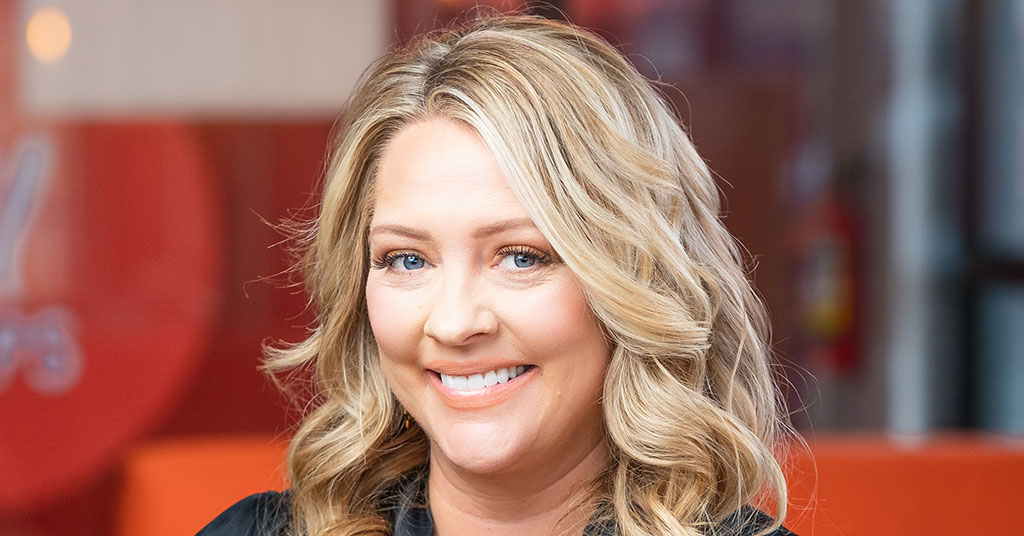Female Mentors: Malorie Maddox Leading the Next Gen to the C-Suite

Name: Malorie Maddox
Title: Chief Strategy Officer
Company: Scooter’s Coffee
Years in Franchising: 1
Number of units: 750+
Can you describe the role mentoring has played in your career? Mentorship has been prevalent in my life from an early age. I still keep in contact with various teachers from middle school and high school. I also had a piano teacher who was very instrumental in my life growing up. I was always seeking out role models.
Why is mentoring important for female franchise leaders? When you are in a leadership position in the franchise arena, you will face many challenges. We always encourage our franchise owners to seek out relationships with other franchisees, particularly those who are best in class. You can get in front of some of the challenges, avoid making some common mistakes, and propel your success by asking the right questions.
What are the key elements of a good mentoring relationship? Trust. You must be able to speak openly and honestly with your mentor. I always advise anyone seeking out a mentor not to automatically go to a leader you feel resembles you most. As you grow in your career, you will have to work with all different styles of communicators and leaders. Look for a mentor whose style you admire but who brings differing perspectives to the table.
Courage. Your mentor should be brave enough to challenge you and give you direct feedback when they do not agree with the path you are going down. I’ve learned the most from those who have been the toughest on me. For example, my executive coach once told me, “What has made you successful in your past may not necessarily make you successful in your future.” That was an absolute “aha” moment for me and proved to be very true.
What are the benefits of mentoring programs for female leaders looking to advance their careers? If it is a truly valuable mentorship, you should learn more about yourself than you ever knew walking into it. You should be uncomfortable at times. It should make you truly evaluate what kind of leader you are. I strongly believe in asking my team, “What three things would you like me to keep doing, start doing, and stop doing as your leader?” I have found this very powerful. Once you get the results, it is critical that you execute on the feedback. Your team has to trust that you are valuing their feedback and making changes based on the results.
What should the mentoring process include? Interviews. Goals you hope to reach coming out of it. Honest and deep conversations. Specific examples of your leadership and solutions on what you could have done differently. Team feedback.
How is a mentor different from a coach? I have had both and believe you receive very similar feedback and additional skill sets from both.
What role did mentoring play in your path to the C-suite? Mentoring helped me grow exponentially in a few key areas. It taught me how valuable courage is. I try every day to be brave enough to bring up areas of discussion my peers may shy away from. These conversations are often the breakthrough moments for teams.
Also, it taught me the value of listening. I love when you can listen to your team all share their thoughts and perspectives. It gives you time to absorb it, evaluate what you may have missed walking into the conversation, and weigh in knowing you have truly taken the perspectives of others to heart. We all have blind spots. Listening to others will prevent you from making big mistakes based on what you may have missed.
How has what you learned from a mentor helped you navigate difficult career challenges? Let the game come to you. The biggest mistakes in my career occurred when I was trying to force something or push too hard
How did mentoring help you in other business relationships? You will always have relationships in business that bring challenges. In news media, we could face very harsh pushback from the public. In insurance, we had challenges with brokers. At Scooter’s Coffee, it is crucial to build strong relationships with franchisees. You are often dealing with a wide range of challenges, ideas, and implementations. What honestly excites me is working one-on-one with a franchisee, addressing specific market challenges, and adjusting our game to drive results. There is no better trust level than when you can win together, and they truly know you have their success at heart!
In what ways has mentoring helped you build confidence in your decision-making? The regrets I have all have one thing in common: I did not trust my gut. My many mentors have reminded me of that. Also, a hard lesson for me was to stop trying to fix everything. Sometimes as a leader, you have to let your team make mistakes. It is hard to do. However, it teaches them some of the biggest growth lessons they have ever learned.
In what ways has mentoring helped you set goals and achieve objectives? The best advice I have ever been given is, “Be yourself. It is why I hired you.” Once I was able to let that truly sink in and eliminate self-doubt, it made me more confident to lead teams. The feedback I most often receive from those I lead is they truly appreciate my direct feedback. They acknowledge it can be hard to hear, but they trust that I am sharing it with their best interest at heart.
What were the three most important things you learned from mentoring?
1) There is no better feeling of success than watching someone you have invested in grow and succeed. There is no better conversation than being able to promote an employee you have seen give heart and soul to growth. Those are the best days I have ever had on the job. 2) It’s okay to end a mentorship. I have had one instance where I was mentoring a young leader. They did not listen to any feedback. They came in with new excuses week after week. They would often get emotional and blame others for their failures. They were only focused on a bigger title, not the growth they needed to do to earn it. I had to end the mentorship knowing this person would never be able to move forward until they took true accountability for their actions and results. 3) You get out of every mentorship what you put into it. The relationship works both ways.
How can mentoring help the next generation of women on their path to the C-suite? I do not want to spend a day in my career where I do not have a mentor. It takes many opinions and diverse thoughts to be successful. I also strongly feel the larger the position, the more responsibility that comes with it. If you want a seat at the table, you must be prepared, accountable, and willing to invest in your growth to stay relevant and respected. The leaders I have seen fail most often are those who refuse to be lifelong learners. They earn a big position and stop investing in themselves and others.
What advice do you have for female executives considering mentoring? Enter this space if you truly have the success of others at heart. One of the best compliments I have ever received is that I never take credit for the success of others. I always give credit. I learned that from a mentor early on. A leader is the sum total of their team’s score. I always look at my role as how I build everyone to where we have the strongest score in the company. We all truly have two jobs—drive results and build people. I would strongly encourage those leaders out there with big hearts to take others in. My aunt once told me early in my career, “Pick up people along the way and put them in your pocket. Carry them around with you.” We are all stronger with an army of support.
Share this Feature
Recommended Reading:
FRANCHISE TOPICS
- Multi-Unit Franchising
- Get Started in Franchising
- Franchise Growth
- Franchise Operations
- Open New Units
- Franchise Leadership
- Franchise Marketing
- Technology
- Franchise Law
- Franchise Awards
- Franchise Rankings
- Franchise Trends
- Franchise Development
- Featured Franchise Stories
FEATURED IN

Franchise Update Magazine: Issue 1, 2024








 The franchise listed above are not related to or endorsed by Franchise Update or Franchise Update Media Group. We are not engaged in, supporting, or endorsing any specific franchise, business opportunity, company or individual. No statement in this site is to be construed as a recommendation. We encourage prospective franchise buyers to perform extensive due diligence when considering a franchise opportunity.
The franchise listed above are not related to or endorsed by Franchise Update or Franchise Update Media Group. We are not engaged in, supporting, or endorsing any specific franchise, business opportunity, company or individual. No statement in this site is to be construed as a recommendation. We encourage prospective franchise buyers to perform extensive due diligence when considering a franchise opportunity.